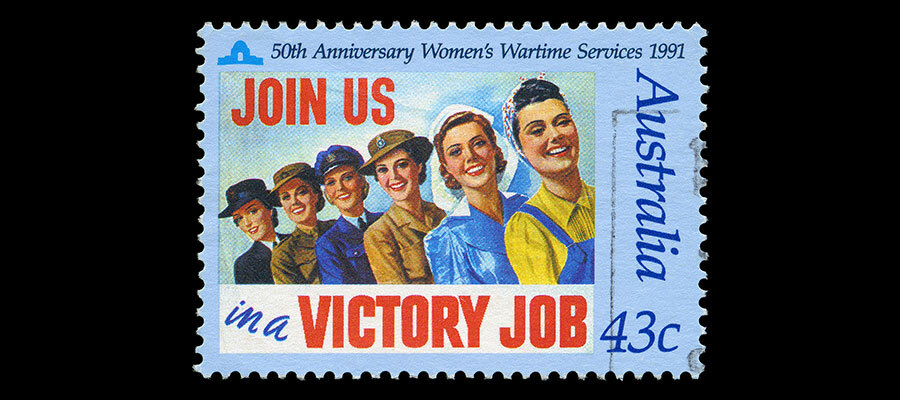Remembering our frontline nurses this ANZAC day
By Andrew Dunbar | 20/04/2021

ANZAC Day is one of the most important days on the Australian calendar, a day when we remember and honour our servicemen and women who have helped to protect the wonderful country and way of life we enjoy today. It’s a day to celebrate everyday Australian values – mateship, courage and sacrifice – values that are still alive today with our “have a go” attitude and tendency to put others before ourselves.
Each year, I write an ANZAC Day post. Previously, I’ve shared the stories of famous Australian battles and, last year, a tribute to the Australian prisoners of war (POWs). But after sitting back over the last twelve months and admiring, like all of us, the dedication and courage of our frontline healthcare workers, I was inspired to reflect on the incredible part nurses have played in our military history.
Australian nurses have been going to war for more than 100 years. Nurses often serve far from home and work in extreme conditions, in remote and dangerous places. More than 3000 Australian women served as nurses during World War One alone. During WWI, over 80 per cent of the Australian battle casualties occurred on the Western Front. It could take many hours for a wounded man to get from the trench into the care of nurses at a casualty clearing station. Not surprisingly, the sight of a nurse, in her white apron and veil, was like that of an angel.
My Great Grandfather was gassed on the Western Front in WWI and cared for by those very nurses. I visited the location some years ago in an attempt to better understand his experience, but I just couldn’t imagine what it was like.
Seven Australian Army Nursing Service nurses, Sisters Dorothy Cawood, Clara Deacon, Mary Jane Derrer, Alice Ross-King, Alicia Kelly, Rachael Pratt, and Pearl Corkhill, were awarded the Military Medal, "for acts of gallantry and devotion to duty under fire" while working in casualty clearing stations in France. This was the highest bravery award available to them.
The Australian War Memorial shares two stories:
During one bombing raid in August 1917, Sister Kelly shielded her patients' heads with enamel washbasins and bedpans. A chaplain found her in a hospital tent, holding a wounded man's hand as the bombs fell. "I couldn't leave my patients," she said simply.
One night, early in July 1917, Sister Pratt was on duty at a casualty clearing station in Bailleul, France, when a German bomb exploded near her tent. Metal fragments tore into her back and shoulders, puncturing her lung, but she continued to care for her patients right up until she collapsed. She was awarded the Military Medal for her "bravery under fire".
There are many more incredible stories like this.
Nurses continued to serve through WWII, the Korean War, Vietnam and more. Post war, many nurses struggled to readjust to civilian life, just the same as soldiers. The women were not recognised as military veterans by the government.
Apt Wealth client, Dorothy “Dot” Angell was one of those who served in Vietnam. She was sent over as a civilian nurse to look after the local population who were impacted by the conflict.
When recalling her time in Vietnam, Dot says some of her most vivid memories are of the collegiality amongst the nurses and the Vietnamese people.
“In the early days, the living and working conditions in which we found ourselves were very primitive, and we had very little in the way of surgical supplies. When we requested help from the Australian Embassy, we were told to go to the Americans, from whom we would beg, borrow or steal. Yet we developed a mateship and collegiality as we worked and lived alongside each other, and the stoicism and friendliness of the Vietnamese people has stayed with me.”
Dot has spent the years since advocating for the nurses’ rights, many of whom suffer the same medical and psychological conditions as the military personnel who went to Vietnam. We are very proud to know Dot and have closely followed her progress as she advocates for this important recognition and support.
After COVID lockdown restricted our remembrance activities last year, I am very much looking forward to attending my local dawn service in 2021. I hope you will have the opportunity to pay tribute to those incredible Australian nurses. We remember the Australian qualities of humour, selflessness, resourcefulness and mateship, not only lived by our nurses but by all our servicemen and women pre and post.
Lest we forget.









